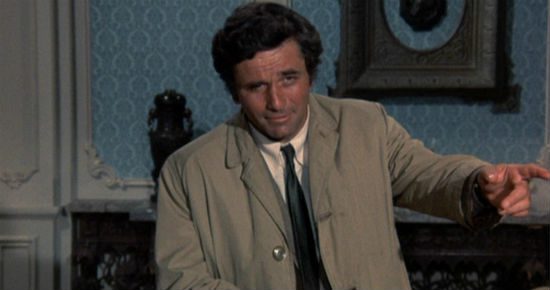We should never jump to conclusions. That’s a form of dishonesty that involves skipping necessary steps in learning and logic.
Someone may, of course, jump to conclusions without being willfully or intentionally dishonest in doing so. They might jump to a conclusion due to an innocent failure to consider other possibilities — we humans are finite and fallible, after all, and we can’t always think of everything. Or we might jump to conclusions because we are misinformed — garbage in, garbage out. Or we might just be hangry and impatient and distracted or otherwise not thinking clearly.
So we should be careful in jumping to conclusions about why someone else is jumping to a conclusion. But we have to acknowledge that jumping to conclusions can, in theory and in fact, be a form of dishonesty. If we see someone jumping to a conclusion, then, we have to allow for the possibility that dishonesty and bad faith might be playing a role in that. To ignore or deny that possibility of dishonesty would be, well, dishonest.
But all of this necessary caution against jumping to conclusions does not mean that conclusions are impossible — that we can never arrive at any conclusions honestly or conclusively.
Say you’re playing cards with a friend and you’re losing every hand. You begin to suspect that they might be cheating. That’s a serious charge, and you’re reluctant to make it against them without more evidence confirming your suspicion. You don’t want to jump to conclusions.
But hand after hand your friend keeps drawing four aces. The odds that this is happening by pure random luck are astronomical. And then your friend draws four aces while you’re holding two. And then they draw five aces.
Now this isn’t a conclusion that you’re jumping to. It’s an undeniable, unavoidable conclusion that’s jumping onto you. And to deny that conclusion, at that point, would make you just as dishonest as your no-good cheating-at-cards friend.
Jumping to conclusions is a Bad Thing. Jumping away from legitimate and necessary conclusions is even worse.
What prompts all of this is Richard Gonzales’ earnest essay for National Public Radio “NPR and the Word ‘Liar’: Intent Is Key.” It’s a capably generic look at the prudent reasons why we have to be careful about jumping to the conclusion that someone is lying every time they state a demonstrable falsehood. The lazy undergrad framing — citing a dictionary definition as argument? really? — undercuts Gonzales’ main point, but it remains a legitimate, prudent concern. NPR doesn’t want to jump to conclusions. Not every utterance of a falsehood is a deliberate lie involving a willful attempt to deceive.
Alas, however, Gonzales and NPR then lose track of the logical implications of what this means. Intention to deceive, they say — correctly! — is the key distinction between a lie and other false statements. Sometimes — quite often — people state falsehoods without deliberately intending to deceive. And also sometimes — quite often — people state falsehoods with a deliberate intent to deceive. Sometimes, in other words, people lie.
Having established this vital and necessary distinction, Gonzales and NPR then jump to an unfounded conclusion: We must never say that someone is lying.
Gonzales admirably wants to avoid jumping to conclusions. That’s wise and good and honest. He thinks the best way to avoid that is to jump away from all conclusions. That is not wise, not good, and not honest. That’s like deciding beforehand that you’ll never accuse anyone of cheating at cards even if they’re holding 93 aces in a game of five-card stud. It’s not good because it’s not accurate — it’s not true.
This is where the half-clever always half-cleverly start to talk about mind-reading. You can’t read minds! You don’t know what’s in that person’s heart! There are a million other possibilities — mistaken, confused, misinformed, a victim of deception themselves, etc. etc. etc. — and you’re not God or the Shadow and you can never, ever know with adequate certainty what anyone else’s intention is when they repeat demonstrable falsehoods even directly in the face of incontrovertible evidence!
It’s all inscrutable and unknowable and mysterious, they say. So just pay up, because their six aces beats your two pair.
This mind-reading evasion is a form of willful ignorance. (See how I attributed intent there with the word “willful”? Yeah. That’s not the product of telepathy either. No mind-reading required to see that the refusal and denial involved here involves an act of volition that is, at the very least, semi-conscious.)
Intent is discernible. It is not an unknowable, impervious mystery. Bad faith is something we can gauge, measure, record and demonstrate.
Gonzales and NPR are correct that we need to be careful not to presume the existence of bad faith beforehand. It is a conclusion that has to be arrived at, step by step, and not one we can confidently or honestly jump to. But we can and must go through those steps and we can and must follow where they lead. And when those steps lead us, conclusively, to a conclusion of bad faith, we can and must accept that conclusion and not try to jump away from it.

“Thou shalt not bear false witness against thy neighbor,” the commandment says — a construct that we oversimplify when we twist it into a simple prohibition against lying. The commandment is concerned as much with effect as it is with intent, concerned with the intent to harm as much as with the intent to deceive. We tend to miss that — getting so preoccupied with the harm done to those being deceived that we completely miss the harm done to the neighbor against whom false witness is being given. (For a good sorta-biblical illustration of this, see the story of Susanna and Columbo, wherein our hero does not balk at reaching the conclusion that a lie can be proved to be a lie.)
Accusing anyone of violating this commandment is a serious thing and not something we should ever do lightly. But recognizing that shouldn’t lead us to the strange and confused notion that no one can ever be said to have violated this commandment. The presumption of good faith does not mean that we must pretend bad faith has never existed any more than the presumption of innocence in our criminal courts means that prosecution and convictions are impossible.
The idea that intent is wholly unknowable is an excuse for jumping away from conclusions. The refusal to recognize lies as lies becomes, itself, another form of dishonesty.
In the specific examples NPR discusses, this creates problems for their reporting. It leads them to getting the story wrong:
In 2015, candidate [Donald] Trump claimed that when the World Trade Center was attacked on Sept. 11, “I watched in Jersey City, N.J., where thousands and thousands of people were cheering as that building was coming down.”
The claim was never substantiated and NPR said so. But we didn’t call him a liar.
Trump made a claim — a large, substantial and outrageous claim. The substance of that claim matters. It matters because of what it may tell us about Trump’s character, and it matters because of how NPR and other journalists ought to receive and perceive other statements made by Trump. But it matters most of all — as the commandment reminds us — because of its effect on the neighbors against whom he is bearing false witness.
NPR is, in effect, saying that since they are unable to initially state, with certainty, that the prosecution’s witness is lying, they have no choice but to allow the accused to be convicted. The presumption of good faith and civility and benefit of the doubt extended to the man making an unsubstantiated statement is not also being extended to the neighbors he is attacking and accusing with that false statement. That’s pretty gross and cruel.
The journalistic malpractice here, though, is that NPR just kind of stops. “The claim was never substantiated” isn’t the end of the process or the end of the story. The next step, in journalism, is to return to the person making the unsubstantiated claim and require that they provide substantiation. If they are unwilling or unable to do so, ask why they persist in repeating an accusation that they themselves admit has no basis.
This is the most obvious and straightforward way to discern the supposedly unknowable “intent” — and it’s standard journalistic practice. It’s Reporting 101. What’s the first step in discerning someone’s intent? Ask them.
NPR didn’t do that — or, at least, they didn’t do that aggressively enough to return with an answer. They just stopped, and shrugged — “Hey, we’re not mind-readers.” That’s malpractice. The story isn’t done yet. The reporting isn’t done yet.
False statements require an explanation, a correction, a retraction. The refusal to provide an explanation or a correction or a retraction is news — an ongoing story that doesn’t end until the explanation is provided or the refusal of an explanation is itself explained.
The refusal to provide either substantiation or an explanation is, in fact, an admission of intent. It means there’s lying going on. When a person makes a false statement, clings to that falsehood in the face of evidence disproving it, and refuses to explain why, that person is lying. They are repeating falsehoods with the intent to deceive. We perhaps cannot say, with 100-percent certainty who it is that they are intending to deceive — the public in general, specific others, or simply themselves — but the determined, willful intention to deceive becomes a conclusion we cannot jump away from.
Refusing to state that conclusion is not prudent or accurate or truthful. And it makes us complicit in the harm being done to the neighbors against whom false witness is being borne.












